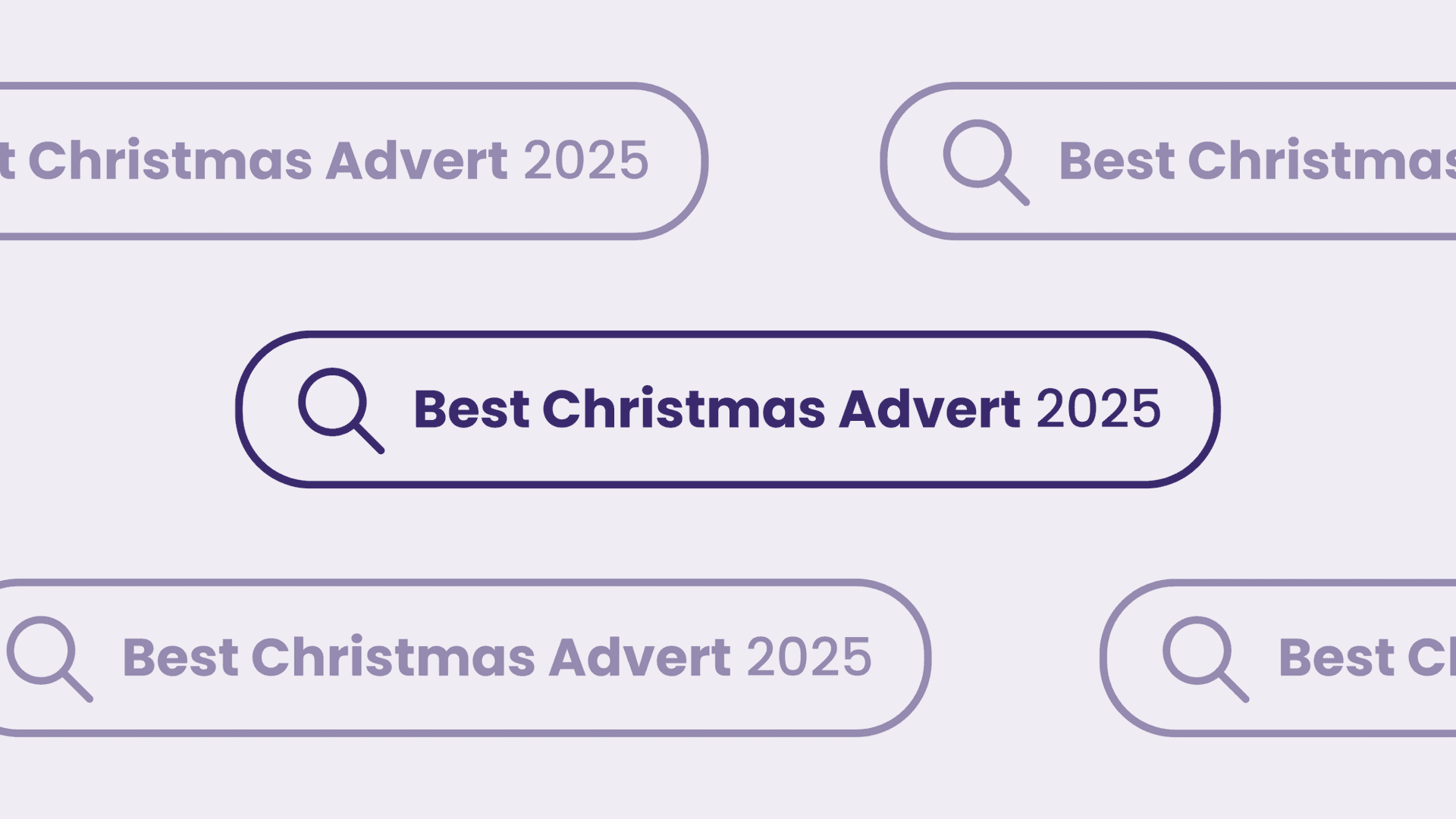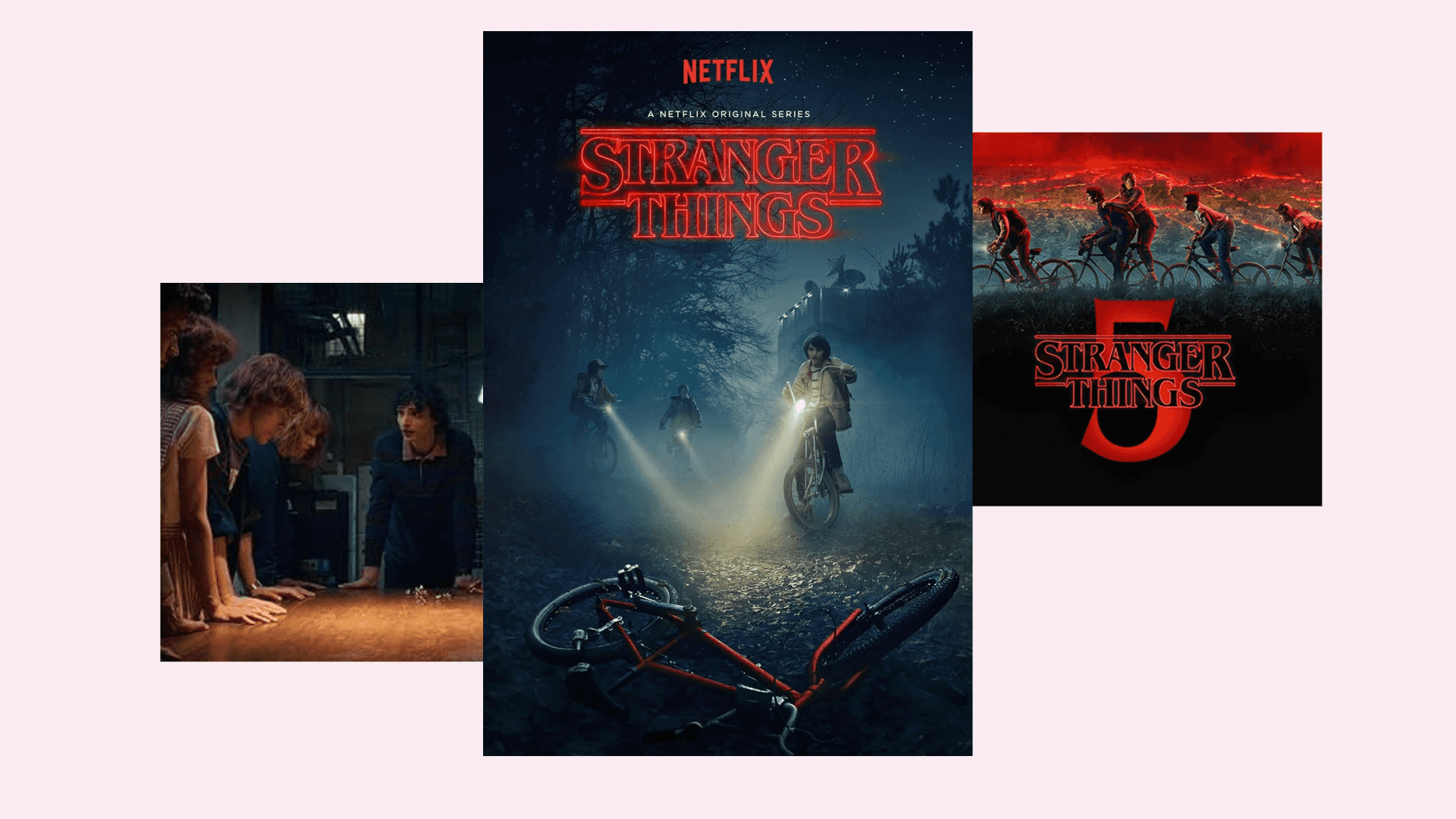
the middle man(ager)
Written by Polly
RESTING PITCH FACE EP 7: THE MIDDLE MAN(AGER)
On Resting Pitch Face this week, we are talking about Account Managers and the value they bring to agencies. We’re giving our take on what the role should entail and the benefits of skipping the middle man and talking directly to the specialists.
Listen on Spotify or Apple Podcasts or subscribe to our YouTube channel for weekly episodes.
See below for a full transcription of episode 7.
VIDEO TRANSCRIPT
Polly: Right, so…today’s podcast topic for conversation, account managers.
Dan: What was your experience like of being an account manager?
Polly: So, I was an account manager for a number of years, for a design agency. Mine was very full on, but I think my role…well, I don’t know, it differs from agency to agency, what an account manager actually covers. Like, I’ve got friends that work as account managers, and they literally just deal with talking to the clients on a day-to-day basis, and letting them know how a project is going. And they might then have somebody else that’s a project manager, that then does all the scheduling, makes sure that everything’s on track, and in the studio, and there’s time allocated for it. And then somebody else that does sales. My role was doing all of that. Which I think is quite common as an account manager job. But I think sometimes the…for me, I think the term “account manager” is used far too often to lump many different roles on one person.
Dan: Yeah. I would agree with that.
Polly: Lee wants to go so bad.
Lee: I’ve got things in the locker, I’m just keeping it on hold.
Polly: Yeah.
Dan: I’ve been in roles before which have had totally different job titles, and I think they’ve had totally different job titles to avoid the job title of either sales something, or business development something, or account manager, when in reality, they’ve been ironically sold to me, the role has been sold to me as a hybrid.
Polly: Yep.
Dan: I have a real problem with the hybrid, like a 50/50 split of responsibility between new biz, and say, account management, or…it’s too giant.
Lee: It’s two jobs.
Polly: It’s two jobs, yeah.
Dan: Exactly that. But it’s quite complex to have a…I don’t know whether you’d have say a loose job spec and responsibilities that straddle both, and you’re expected to be new biz focused, and account growth as well.
Polly: Yep. And not just growth, but like, looking after what’s going on just on a day to day.
Dan: Yeah.
Polly: And that in itself is a job. So then, also then growing that, plus bringing in brand new business, it’s a hell of a lot. And there are so many agencies that think it all falls under one role. And maybe if you have a small client base, and not huge targets in terms of new biz, there is places where it can work as one person can manage all that, and do it well. But I think it’s a lazy way, often, of lumping together a load of jobs, and sticking it on one person.
Dan: Yeah, and I think it’s just been lumped together because there’s a commercial element of both, ie, potentially a revenue target against both streams?
Polly: Yeah.
Dan: So then, for the people who don’t actually live those roles, and who’ve set the agendas for those roles just see pounds and pence targets, and go, well, they’re both commercially driven, so…let’s lump them together.
Polly: Yeah.
Dan: I mean, you’re completely right, they are absolutely two different…two different roles, completely.
Polly: But then what happens, then, within those agencies is everybody kind of, like, sees the account manager differently, like, from… Like, say for me, the designers, because you were managing, like, a project, and doing sales and everything else, the designers viewed you as a project manager. So in their eyes, that’s what you’re there for, that’s what they’re going to come to you for. But then, like, say like, the higher up levels would see you as predominantly sales, so that’s the pressure they’re putting on you. And just having so many different people viewing your role so differently, that’s really difficult because it’s really hard to prioritize how you manage your time, and where your focus is, and your focus differs from person to person.
Dan: Yeah. I can say that having someone who is actually quite good at that type of hybrid role means that other people in the organization don’t have to be as accountable, and shirk responsibility because there’s somebody that does that in their day-to-day. So, you’re their go-between the clients and internal teams, that will all…if you’re good enough at that job, I think it’s an easy get-out for teams and service delivery. Or an easier get-out for those people, because they’ve got the go-to person that picks up the shit…
Polly: The in-between person, yeah.
Dan: …does everything else, has a target on their back. Like, yeah, for me, exactly what you said at the start, they’re two completely different roles. And that’s not even project management, that’s I’m talking…
Polly: No, that’s another thing in itself. Yeah.
Dan: …I’m talking new biz, sales, whatever you want to call it.
Polly: New business and account management.
Dan: And yeah, client services, account management.
Polly: Yeah.
Dan: And I think that brings us perfectly onto asking Lee why…
Polly: He’s so quiet.
Dan: [crosstalk 00:05:58.823] he’s got a big smile on his face. No, the question I wanted to ask is Flaunt, here, no account managers, no client services, that was a conscious decision when you guys set up for…
Lee: Yeah. Yeah, I think what you’ve just described there is four different roles. So, how you should be discussing account managers, sales, one, something, coms, something, strategy, which is often something that account managers chip in on, another thing. That’s three. And then project management, which is quite a specific skill in certain services, that’s four. So, that’s four things in one role. And I think what happens if you come in as an account manager, and you can communicate, you get taken advantage of.
Polly: Yeah.
Dan: Yeah.
Lee: The good account managers that sit within agencies get the piss taken out of them a lot of the time because they’re capable. And that’s where the key difference is in how I quite famously describe account management as a thing, and client services as a thing. If you’re good, you’re worth a lot, you do a great job with it. If you’re not, you cause more problems than you’re worth. And I think that’s the key differentiator. Agencies hire account managers because the perception around that role, because it’s so general when it’s advertised, is that you will attract people in larger numbers. So from a recruitment standpoint, filling your agency with account managers is easier. So from a headcount perspective, great, we’ll get account managers. If we put that out, we can get loads of people coming through the door. Sit that person down, if they’re a shit communicator, they will cause you more problems than they will add value. But you get account managers or people in that position that are good, and know what they’re doing, they add value, but then they just get the piss taken out of them.
Dan: Yeah.
Polly: I think it’s if there’s no divide, and there’s no easy way to say that I know that’s where my role ends, and that’s where somebody else takes over, or that’s not my responsibility, it’s very, very easy in a role like that to just suddenly take on everything.
Lee: It’s bad fucking leadership. That’s all that is.
Dan: Yeah.
Lee: Because if you’ve got someone sat there that’s been brought in to do one role, that’s doing four roles, that’s bad leadership. It’s too much. Your expectations are not fair, and then you end up finding yourself in a situation where you’re taking advantage of people.
Dan: Yeah.
Polly: Yeah.
Lee: Again, bad leadership.
Polly: Yeah.
Dan: Yeah. Have you ever had anybody being candid about this, when you’ve put the Flaunt proposition around what we’re talking about here, so lack of client services, have you ever had anyone umming and ahing about that, or being a little bit taken aback by it, not sure, and almost seeing it as a negative, or a question…? Have you come across that in your seven-odd years?
Polly: You mean with a client?
Lee: Yeah. With a client?
Dan: Anyone.
Lee: Yeah, all the time, because it’s unconventional. Agencies are set up with a client services department, and an account management team, because that’s how it’s always been done, and that’s the expectation. Brands understand that function. They’re the standard, that’s their thing. And I think certain services differ. Like dev, for example, is a good one, because you have project management in dev that sits in between the client and the dev team to make sure things get delivered on time, make sure things go out on time, and that’s a slightly different skill. Marketing-wise…I’ve not really come across any negativity around the way that we do things. Because nine times out of ten, with marketing being so results driven, a client comes to you with a question, and the specialists answer that question on the spot, problem solved. Client services, especially when you’ve got a bad account manager in place, won’t know the strategy and the specialism at a level which allows them to answer that question fast enough, which means that there’s a block between the client and the answer. Ultimately, clients pay you for the answers.
Dan: And time.
Lee: And time. Which, both are affected if you’ve got someone that’s not doing the job right.
Dan: The reason why I asked that question is, I don’t know if you remember when…I don’t know if it were pre-Christmas… Anyway, at some point…
Polly: I do, yeah.
Dan: …somebody posted something on LinkedIn, and it was on this topic, and it was in our world. And I got in touch with a lady who’d left the first comment on that post, and her comment was…I’ll just describe it as anti…sorry, she was pro-account management, and pro-client services. And she was a client side marketing leader, so the type of people that we’ve been dealing with. And I got into a really interesting conversation with her, and she was all about the pros, and actually was kind of flying the flag of, big enough client size-wise on their side, they would need or want or expect somebody to pick up the pieces. And I could kind of understand where she was coming from, but to be fair to her, I talked her…not necessarily talked her around, but talked her through our proposition a little bit more, and she almost came to a bit of a…almost like a hybrid kind of model, in the middle, which I don’t know exists or not. But that was really interesting, to see her kind of publicly on this post say I actually can really see the benefit of having, from client side, having a main point of contact, one point of contact.
But I actually think that’s the issue, that they want to make sure they’ve got a point of contact. So not necessarily a client services person, or an account manager…
Polly: No.
Dan: I don’t think the job title really matters, it’s will we be looked after?
Polly: Who’s responsible.
Dan: Yeah, who…who, when I’ve got a question, do I go to? Can you tell me who that person is, and can that person, as best they can, remain the same person throughout that relationship? Now, obviously, we know it’s a revolving door in a lot of places with account management, any points of contact. But that was really interesting, because she just outrightly said…at first she outrightly was like, it’s account management, but when you dig into it, I think it was more a point of contact, safety around that, like security around just having a point of contact.
Polly: Yeah.
Dan: So, I don’t think the account management job title was the kind of issue, if that’s the right way to look at it, but the first hand comes with this, you know, client side, head of marketing. And she was kind of saying that’s how we feel like we’re in the right place, with just that…
Lee: But is that predicated on past experience?
Dan: I believe so, yeah.
Lee: So, she won’t know any different.
Dan: True. Yeah.
Lee: An agency that is so set, like we are, about our opinion on that specific layer, has to have an operating model that supports not having that layer in place, the way that we operate with…in terms of, like, transparency, for example, supporting everything that we’re doing. Clients know what’s happening at any one time, without even speaking to anyone. I think that is a completely different model to agencies that I’ve certainly worked on.
Dan: Yeah.
Polly: Yeah.
Lee: And I think that’s where an account manager comes in. Because at an agency where you haven’t got any transparency, and you can’t speak to the specialists, you’re going to want that point of contact. But that’s just how it has been.
Dan: Yeah.
Lee: So, someone in her position, or his position, I don’t know who it was you were speaking to, but that mindset will have been based on past experience. And when you get used to something, people don’t like change, people don’t like conflict.
Dan: Yeah.
Lee: Yet when you explain the benefits, and then you explain the surrounding operating model, it becomes quite clear that that’s a better way of doing things.
Dan: You’ve just reminded me now, I did get in our lack of staff turnover into the conversation.
Polly: Oh, yeah. That was quite a big thing, wasn’t it?
Dan: And she was like, wow, that’s impressive.
Polly: Yeah.
Dan: So, it’s intertwined with what you’re saying there. It’s an experience thing. And when I managed to tell her the lack of staff turnover here at Flaunt, she was like, that’s amazing. So, that almost might have put her mind at rest more than…
Polly: But that’s, again, aside from Flaunt, that’s quite common with account managers being…like, chopping and changing, that who’s working on your account, who’s in charge of it. Even if it’s not necessarily them leaving the business, somebody else might take it over. There’s often that, and we’ve heard it from clients multiple times where that’s the big problem, is how you might think, oh, an account manager, that’s great, I’ve got this one person working on my account, and then all of a sudden they disappear, someone else gets brought into it, it gets moved to a different account manager, it gets moved to a different team… And actually, again, that’s just something that doesn’t happen if you’re talking to the people that are working on it.
Lee: Account managers leave agencies because they get the piss taken out of them.
Polly: Yeah.
Lee: They move around because they get a raft of shit thrown at them because the expectation is so wildly off what they actually should be doing that they just can’t hack it anymore. Why would you?
Polly: They all think it will be different at the next one. But it’s…yeah, it’s one of those jobs in agencies that probably does have one of the highest turnovers of staff.
Dan: When you…I’ve got to ask you this. When you were an account manager, was that your job title?
Polly: Yeah.
Dan: Did you embrace it when you had the conversations with strangers, and they’d be like, oh, what do you do? Were you, like, fine with saying I’m an account manager, or did you change it?
Polly: Yeah.
Dan: All right. Okay. I struggle with saying what I do, because the easiest way to say what I do is sales. It’s the easiest. It’s different because we all have the knowledge a bit, but very… In fact, it was New Year, a stranger, what do you do, I was like, oh, well, yeah, I do sales. And I just wondered, because of what we’re talking about, the account manager thing spinning into the sales thing…
Polly: Yeah…I know what you mean, because like, if I…I guess I would, if it’s somebody that doesn’t know the industry, doesn’t know anything about agencies, and what that title encounters, I would have to, like, explain it like… I remember explaining it to my granddad, because when I said I was an account manager, he thought that meant, like…like an accountant.
Dan: Yeah. Yeah, I can see that.
Polly: And I was like, no, no, no, not that. Absolutely not that. I mean, it involves quite a lot of money, but it’s not that. But yeah, I think you do often have to, like…people would say, right, so what does that entail day to day? And that’s where you’d be like, oh, a bit of sales, a bit of project management, a bit of this, a bit of that, a bit of that.
Dan: The hour pillars.
Polly: Like, eight different jobs…
Dan: No, I just wondered whether you’d ever had that.
Polly: Yeah, I probably have, but not…not really consciously. But now you’ve mentioned it, I can see that I have done that, yeah.
Dan: Yeah, connotations, we’ve all got them.
Lee: But yeah, it annoys me, because there are good people that work in that space.
Polly: But it does attract quite…if you’re an account manager, you do, like…like you said, you can get good ones, you can get bad ones. But if you are a good one, it’s a role that attracts people that are quite good in that space, because you have to be quick on your feet, you have to be able to juggle all loads of stuff at once, flit between lots of different projects at the same time. So, you do have to be…you’ve got to be on it. So, it does tend to attract quite good people, often. Just not always for the right reasons.
Lee: Yeah, and my scale of experience in that space is probably 80/20 towards…shit.
Dan: Badness. Badness versus goodness.
Lee: Yeah.
Polly: I’ve obviously got quite lucky, then.
Lee: There’s a distance as well. Like, the ones that are good are really good. Like, wildly good.
Polly: Yeah. Yeah.
Dan: Are we done? Very good, 19 minutes.
Polly: [inaudible 00:19:37]
Dan: I think we are.
Polly: [inaudible 00:19:42]
Dan: Yeah.
Lee: Going to tag them to the topic [inaudible 00:19:45]





